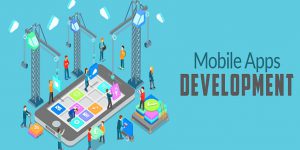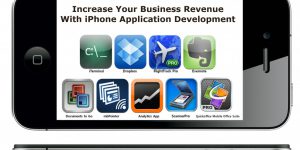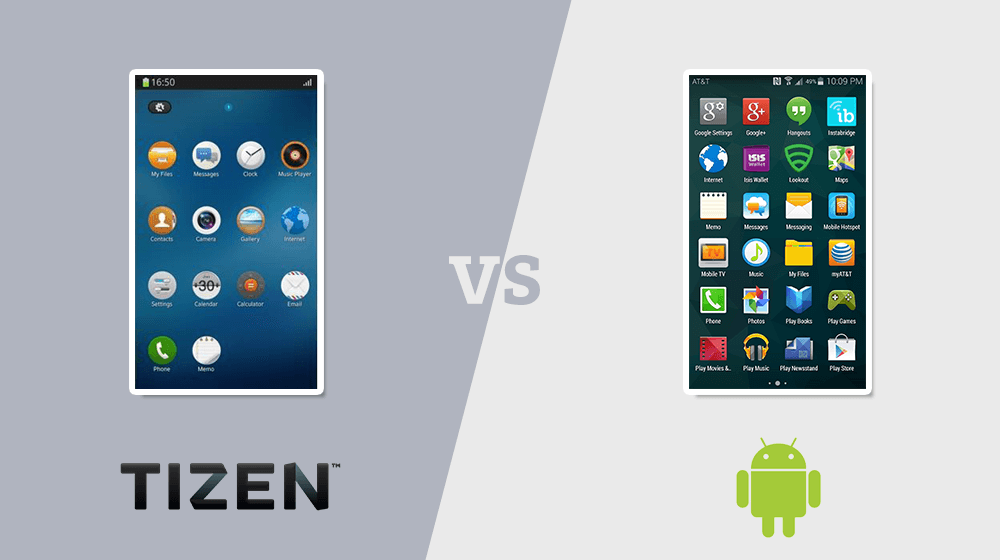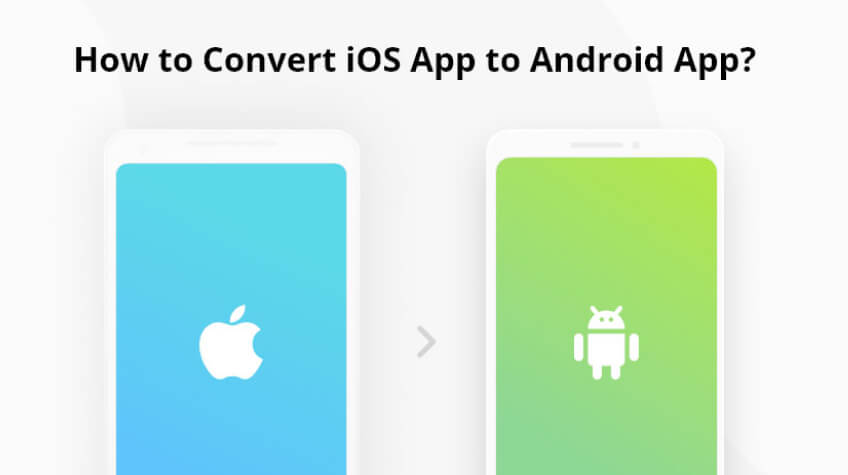
The use of mobile devices has recently become extremely popular because of the ease they offer to users. Today people have access to every piece of technology that has ever been developed in history, including mobile applications.
Having an app can help you remain competitive as a company and communicate effectively with your ideal customers.
When we talk about mobile app development, there are two major platforms to choose from, iOS and Android.
They each have millions of users and their own unique set of benefits. When you choose to develop an app for your users, you also need to choose a device platform to accomplish your goal. And it largely depends on the available resources, the level of popularity in your immediate region, or the conditions.
Gone are the days when developers were restricted to constructing an app for a single platform at a time. And due to this, the majority of customers opted to use an iPhone over an Android device. This is the primary reason why so many companies have begun developing apps specifically for iOS consumers.
However, as the market for Android continues to grow, owners are considering making the conversion from iOS to Android in order to appeal to different groups of audiences.
So, if you want to know how you can convert an iOS app to an Android app, then read the full post. In this post, we shall discuss with you the procedures involved in moving an app from iOS to Android.
Let’s get started…
Why Should You Port an iOS App to Android App?
There are several compelling reasons to port an iOS app to Android. It’s a no-brainer that Apple devices are costly, making them available to only a particular category of people. Because of the high cost of Apple devices, more and more people now opt for Android devices. As they come in different price ranges, they are affordable for everyone and anyone.
Research indicates that there are over 2.5 billion Android users in over 190 countries, whereas 1.2 billion people use iPhones. This implies that Android users are far more than iPhone users.
Converting the iOS app to the Android app will allow you to cater to a larger group of people.
Aside from that, it will assist you in acquiring insight into the trends that are occurring in the market.
Here are some of the top benefits of converting an iOS app to an Android app:
Converting iOS to Android will allow you to reach a larger portion of the market.
According to research, 72 percent of the world’s mobile market is occupied by Android users. This way, you will be able to reach more individuals and sell to a more diverse audience.
Converting the iOS app to the Android app will let you save resources and money. You can create something fresh without having to pay for the services of an Android app development company. It is because when you port an app from iOS to Android, you keep the same fundamental layout and structure of the original program. Also, by recreating the program that was previously installed on your iPhone, you will not only save time but also work and money.
When you convert the iOS app to an Android app, you can easily tap a global audience that consists of users of both iOS and Android. You will get access to millions of new consumers, all of whom will ensure a substantial return on your investments in a very short amount of time.
It can help you increase your revenues without investing in additional mobile app development resources. You will be able to generate more money and have more success by charging consumers for in-app purchases as well as downloads.
Problems That Can Occur When Porting an iOS App to an Android App
When porting an iPhone app to Android, there are a few things you need to keep in mind, which are as follows:
1. Differences in the Architecture
The fact that there are too many versions of the Android operating system is the aspect of Android that users find the most frustrating. Every few months, there is a new one that comes out.
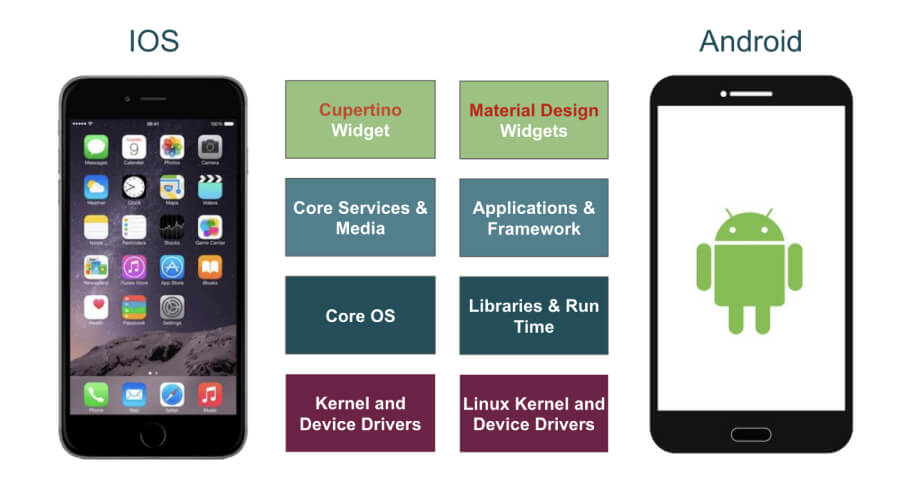
It is challenging to keep up with the modifications and choose an option that encompasses all of the capabilities. In most cases, the previous versions of the software don’t have some features available in newer ones.
Functionalities such as navigation, notification, file management, and interoperability are quite common. In order to fix this, you will need to differentiate between earlier and more recent versions of the operating system. This, in turn, makes the whole process tedious, time taking, and frustrating.
2. Design
This is one of the more significant stages that must be taken in order for the effective porting of iOS apps to Android. The user interfaces (UI) of both iOS and Android are entirely unique and adhere to various standards of design. This is relevant in terms of the form, dimensions, and overall concept of the app.
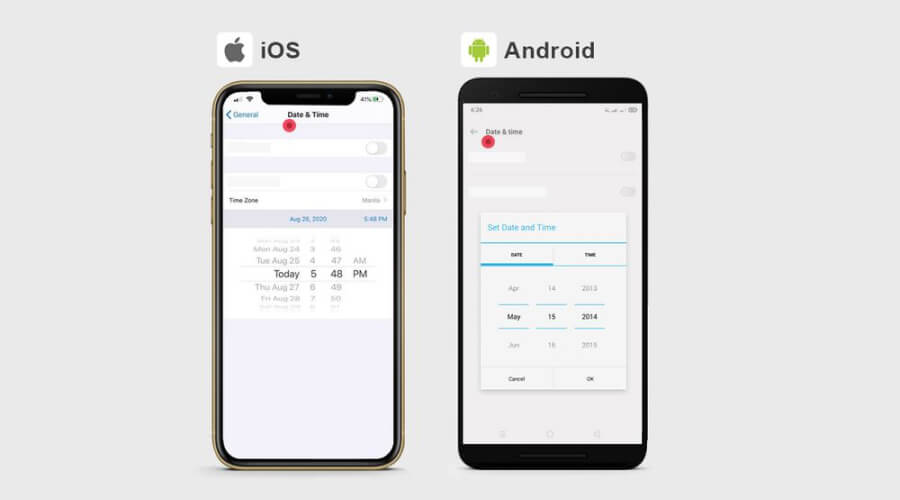
Apple adheres to requirements for the user interface, while Android places greater emphasis on material design standards. Therefore, you need to think about how to develop the app so that it is compatible with the new platform.
Buttons, lists, tabs, widgets, navigation components, data sectors, and time sectors are some of the most prevalent areas in which the two primary mobile operating system designs diverge from one another. You will need to rebuild the wireframes as well as the mockups in order to make your app Android-friendly.
You can, however, maintain a single design for both networks, such as Instagram, or customize it to correspond with each individual platform.
3. Code, Frameworks, and Other Library Resources
When developing mobile apps, there are often always some rules and libraries involved. Before you can convert an iOS app to an Android app, you need to make sure that those tools are compatible with each other.
In the event that they are not, you will need to think of suitable alternatives. The vast majority of app developers for Android use Java, but the Swift programming language is required for iPhone app development. In such a situation, transferring code from one platform to another becomes a task.
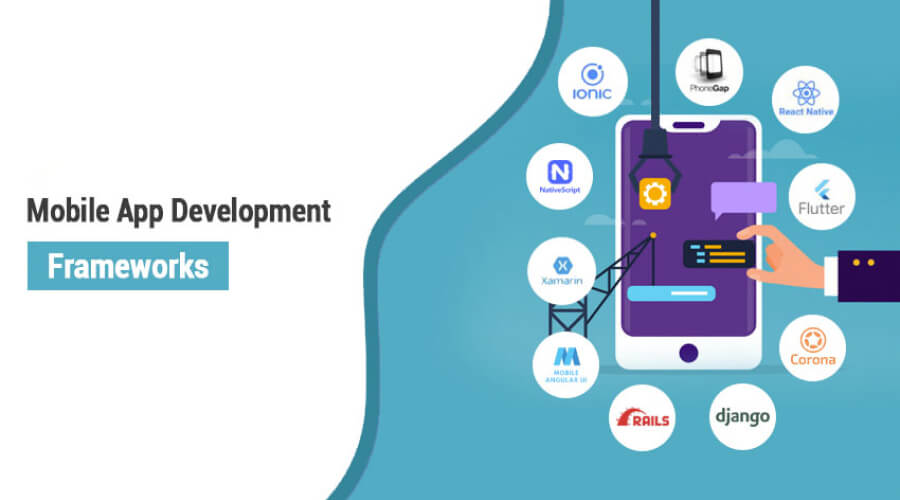
It is only feasible in situations where both platforms are capable of operating in Objective-C. This is the only language that is compatible with both operating systems and contributes to the process of converting from iOS to Android. In that case, you will need to completely rebuild the code. This could take a significant amount of time, depending on the complexity of the app’s design, architecture, and other factors.
4. Testing
The number of Android devices that you want your app to be compatible with is the single most important factor in determining how many tests you will need to execute. Therefore, the more the number of supported devices, the greater the number of tests that will need to be conducted.
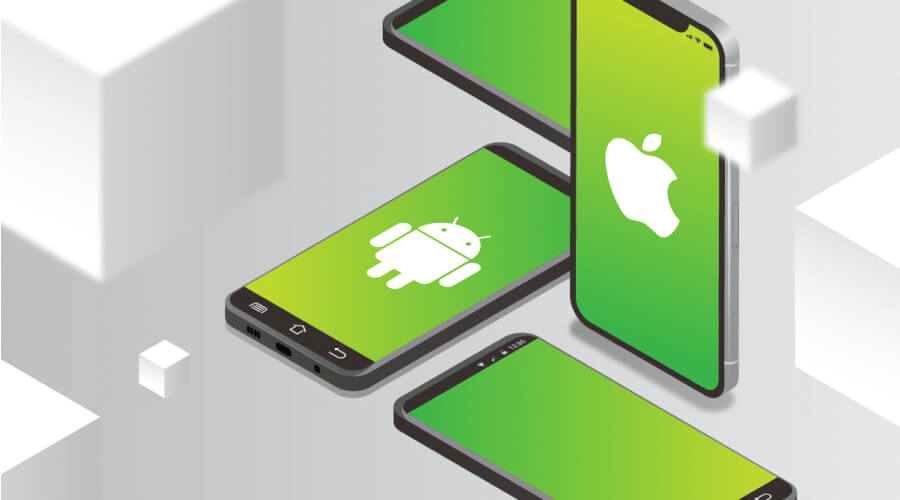
5. Problem-solving and performance enhancements
When you convert an iOS app to an Android app, there is a possibility that you will encounter difficulties and connectivity problems. You need to work on them and ensure that users may easily transition from one platform to another by making the transition as seamless as possible.
So, these are the possible issues that you may face in the process; let’s now see how you can convert an iOS app to an Android app. Here we go…
How to Convert an iOS Application into an Android Application?
1. Formulate a Suitable Strategy
Before you begin converting iOS to Android, you should consider the different variables, such as the budget, designs, features, architecture, and workflow. You will need to put the strategy into action and ensure that it is followed properly to meet the deadlines.
You shouldn’t forget to consider the potential glitches and mistakes that could be brought on by the porting process. You will need to address these concerns and develop an Android app that can live up to the standards set by both your company and its customers.
2. Assessment and Implementation
In order to put the strategy into action, you will need to resolve all of the technical concerns with the code, libraries, and third-party services. The process of developing mobile apps begins with the selection of a technological stack. It is advised to pick the one that best accommodates both your financial constraints and your available time.
The majority of the time, developing a single Android application is all that is required to transform an iOS app into an Android app. The process of converting iOS into Android may take some time. Therefore, it is essential to be patient and set reasonable goals at the outset.
The duration of the process is also contingent on the kind of application that you are developing. It is possible that the process will take longer if the Android-specific user interface requires additional functionality as well as modifications to the material design.
3. Putting the App through Its Paces and Publishing
After converting iOS software to Android, there are a lot of different ways to evaluate the program’s overall quality. For testing purposes, you have the option of working with a real Android device or using the emulation tools. Before releasing them to the public, this will assist you in working out any issues that may exist.
It also is dependent on the Android app development services professionals that you use to complete the task for you. They might be subjected to load testing, beta testing, validation testing, or user experience testing as part of the mobile app testing process.
When you are satisfied with the reliable operation of the program, you can then upload it to the Google Play Store.
Cost of Porting an iOS App to an Android
The cost of porting an iOS to Android varies based on several aspects, including the company you’ve hired, the location, and the functionalities you’re looking to incorporate in your app.
On average, it may cost you around __ to port an iOS app to an Android app. However, it is crucial to hire a reputable company for the project, such as WeeTech Solutions Pvt. Ltd.
WeeTech has a team of developers who can convert iOS apps into Android apps with ease for you. You can contact the WeeTech team anytime to discuss things in detail.
Wrapping up…
So this is all about converting the iOS app to an Android app. Make sure to have a solid plan in place before you choose to convert iOS software to Android software. Also, it is crucial to choose the right company to do the job.
Professional app developers always use a systematic approach to port iOS to Android. They will, in fact, provide you with the best Android app development.


